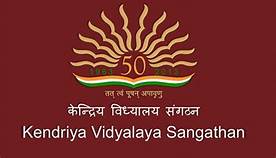Bhubaneswar: The National Education Policy (NEP) 2020 requires schools — both government and private — to impart education in the local language till class V.
However, Kendriya Vidyalaya Sangathan (KVS) schools, which operate under the jurisdiction of Central government, may not be able to implement this rule. “Since the KVS and CBSE schools cater to the needs of people with transferable jobs, it would not be practical to use students’ mother tongue or regional languages as the medium of instruction,” The Hindu quoted senior officials as saying.
Union Education Minister Ramesh Pokhriyal Nishank clarified that it would be up to the state governments to decide on how this would be implemented in schools under their jurisdiction.
Speaking about Kendriya Vidyalayas, he said: “The beauty of this policy is flexibility… We will try to take everyone along in the process of making a vibrant India.”
A senior KVS official said it’s a fantastic idea, and very correct academically. “Unfortunately, in our country, that doesn’t happen. The child speaks one language at home and then comes to school and is totally puzzled and confused when suddenly exposed to English,” he observed, adding that the policy had not mandated the use of mother tongue because of the variations that exist across the country.
Moreover, KVS will be facing difficulty in recruiting teachers as it hires from all over India. To recruit, post and transfer teachers based on their mother tongue would be a huge challenge for the management of KVS.
KVS follows the practice of three-language formula, in which English and Hindi are taught from classes I to XII, while Sanskrit is mandatory from VI to VIII Standard. Students then have to opt between Hindi and Sanskrit in classes IX and X.
KVS has 1,240 schools across India with a student strength of 13,15,216.


Comments are closed.